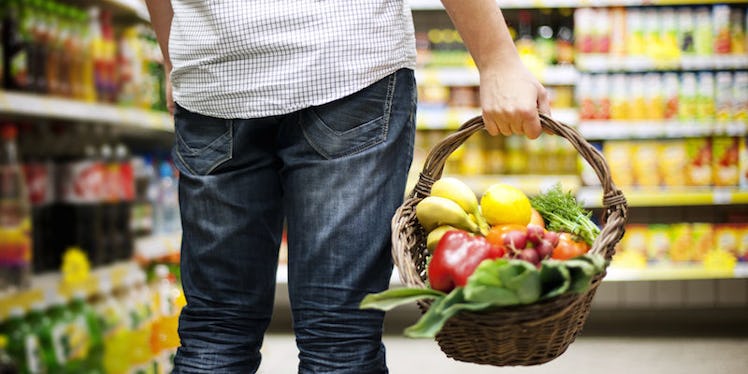
5 Grocery Store Hacks That Will Help You Shop Like A Nutritionist
I care a lot about what I put in my body.
You need to know that, first and foremost. I want to be healthy and eat foods that are safe for me.
I am fully aware that there is a lot of corruption in the food industry. However, spending time looking up different chemicals that may or may not be in my food is just not going to happen for me.
I also certainly won't be spending five times the price for certified organic foods.
If you're like me, I have a few tips for checking out what's in your food without all the fuss.
I can't assure you that you'll be 100 percent natural or anything, but it's a good starting point for those who want to get better at choosing snacks:
1. If you can't pronounce the ingredients, don't eat the food.
If you are of average literacy rate and can't pronounce something you're eating, there's a pretty good chance you shouldn't eat it.
Eating things you're not familiar with isn't necessarily a good idea. We should all be aware of what's going into our bodies.
2. If there are more than 10 ingredients, pass.
A granola bar only needs granola. Maybe it has some nuts or chocolate chips.
I don't know.
Odds are, any granola bar on the market is going to have more ingredients than that, which is fine. There is a process to making them, which likely involves adding things.
But if you've got a list two miles long, odds are, you don't need to put most of those things into your body.
3. If it counts for more than 20 percent of your daily intake for anything -- other than vitamins or minerals -- skip it.
No snack should provide you with 75 percent of your daily sodium intake. It's just not a good idea.
Not only is that snack wildly unhealthy, it will result in you taking in too much sodium, sugar or fat.
Find snacks that are going to fill you up without jeopardizing your health.
4. If it's not cheese or a canned food, but it has a best before date that's more than six months away, leave it alone.
Canned and jarred foods last a pretty long time. It's been that way long before people even went to grocery stores.
Cheese also tends to last a long time, naturally.
But if you're choosing crackers, fruit cups or any other packaged food, try to pick things that are more naturally produced.
One way you'll be able to make those decisions is by looking at best before dates.
As a rule, the longer it lasts on the shelf, the less healthy it likely is.
5. If it's something you would refrigerate but the store hasn't, you don't need it.
One big example of this would be those processed cheese slices that are basically plastic.
Cheese should be in the fridge. It's a pasteurized milk product.
However, many grocery stores will fill bins with these cheese slices and put them in the aisles when they're on sale. They can do this because the cheese is so processed and preserved, it doesn't even matter.
This is definitely not something you want to put in your body.
Keeping our bodies healthy isn't easy. Big corporations are often more concerned with profit than health and safety.
There is a ton of evidence and research that points to different things that are healthy and unhealthy, but the fact is, people generally can't agree which is which.
You have to make the best decisions for your body on your own.
While I strongly recommend accessing some of this research and learning the "what's what" of the food industry, this guide is a great way to begin opening your eyes to what you're really buying at the store.